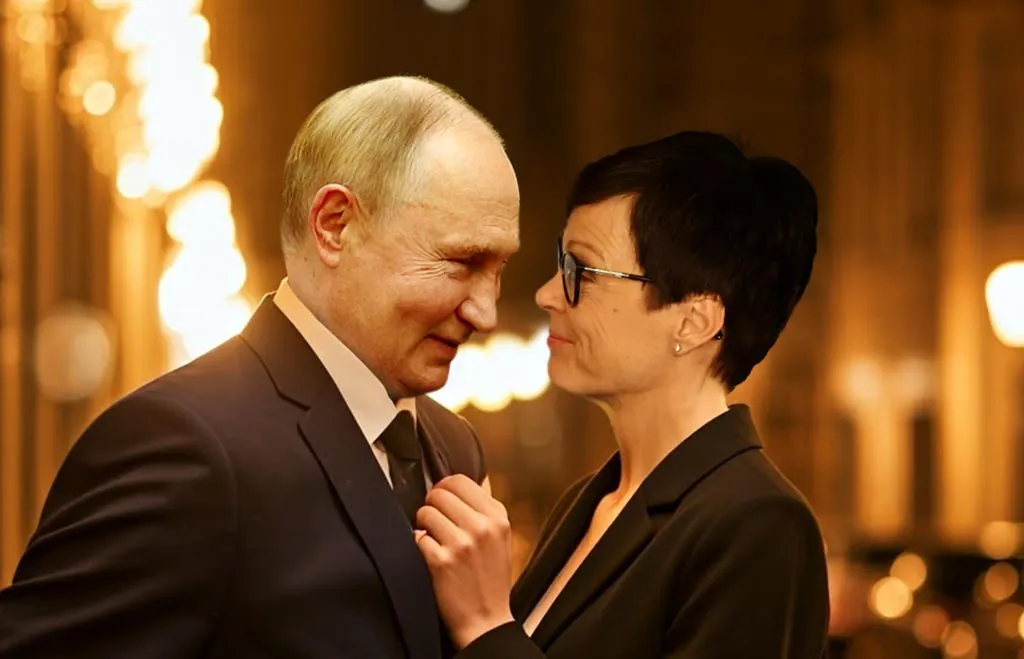Slovenia’s candidate for the post of European Commissioner, who is expected to take over the enlargement portfolio, is the focus of international attention. Namely, the media outlet Politico has once again written about her, describing her as “left-leaning,” and in particular, highlighting her past statements “which have been conciliatory towards Russia.”
European Commission President Ursula von der Leyen announced on Tuesday that Marta Kos would be in charge of the membership applications of Ukraine and Moldova, among other candidates for membership of the European Union. Given the sensitivity of her job, Kos’s statements on Ukraine will certainly come under scrutiny when the European Parliament considers each candidate in four-hour sessions later this year.
“We must be critical toward Russia, but we must not close our doors toward Russia. Slovenia has always had a good relationship with Russia, but under the government of [Prime Minister] Janez Janša, we saw a drift away from Russia toward the USA,” Politico quoted her as saying, adding that these comments are sure to attract a lot of attention in Kyiv and Chișinău, where officials are worried that their applications could languish for years or decades. The 27-member European Union has begun formal accession talks with both countries and there are still many steps to go before they can become full members – and the process is fraught with complex politics.
Kos, who is considered a close ally of Slovenian Prime Minister Robert Golob, will face internal resistance within the EU, with some members quietly opposing the enlargement plan. The leader of the opposition Slovenian Democratic Party (Slovenska demokratska stranka – SDS), Janez Janša, who pointed out: “Mostly correct, Politico. But the party of Prime Minister Golob, where Marta Kos was a vice president, is not a democratic party. It is FREEDOM. A very telling name. Harasho.”
The 720-seat European Parliament will have the opportunity to approve or reject Kos after hearing her answers on the subject. It may also be difficult for Kos to answer questions about her professional past, including recent allegations of links with the former Yugoslav secret police – UDBA – from more than three decades ago. She denies being an informer, but the following archival markings attest to her having been a source for the Directorate for State Security: file no. 452234, UDBA file: -0014000-05448. What this information means has been explained several times by historian Igor Omerza: “She was a registered source for the Directorate for State Security, that is, a lower level than an associate, I call both a “confidant”. Both were confidants and collaborated with the Directorate. Registered sources were usually promoted to collaborators. A registered source only reports, whereas a collaborator is also proactive. He or she takes orders, participates in observations, etc.”
Politico also alleges that Kos is “controversial” because of one of her past jobs, referring to her work between 2013 and 2020, when she was ambassador to Germany and Switzerland, and resigned following accusations of inadequate management by embassy staff.
A spokesperson for the Ukrainian ministry had no comment on the matter
A spokesman for the Ukrainian Foreign Ministry declined to comment specifically on Kos, adding that Kyiv would focus on the actions of the officials and not on their words. “We always look at what people do, not what they say. Of course, when there are sayings contradictory to our interests or disrespectful to Ukraine, we react, but our primary goal is to look at actions, not words,” Heorhii Tykhyi said. Before she can take up her post as European Commissioner, Marta Kos will have to undergo a hearing in front of the competent committee of the European Parliament, where she will need at least a two-thirds majority. After all the Commissioners-designate have been heard, the European Parliament will have to approve the entire Commission in plenary.
The web portal Politico has listed Marta Kos among the five candidates for European Commissioners who are considered most likely to be rejected by the European Parliament’s committees. Since 2004, MEPs have rejected at least one candidate in the hearings for every European Commission, and in total, seven candidates have been judged unsuitable.
A. H.


